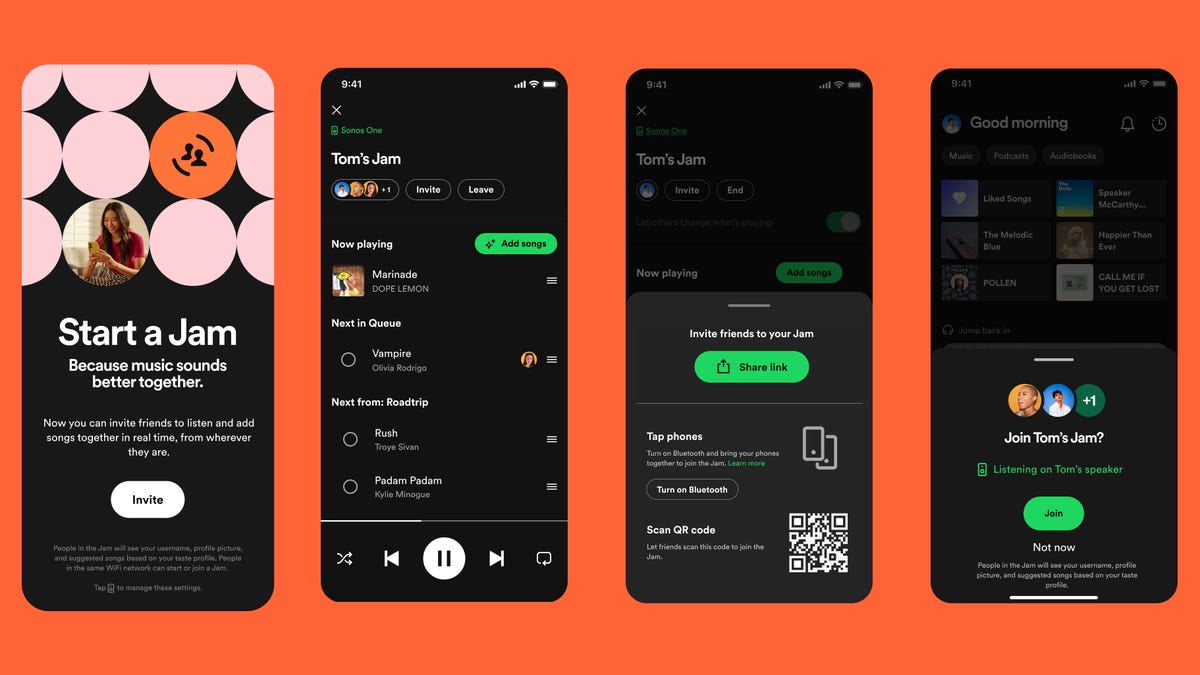Spotify Jam Makes Real-Time Playlists With Your Friends
The new collaborative feature enables Premium users to host an internet music party.

Spotify has unveiled its latest collaborative playlist feature, called Jam, which enables users across the world to add tracks that will play in real time.
To start a Jam, a Premium member sends out an invite to other Spotify users who can then add tracks to a selected Jam. Though Free users can also join a Jam, they do need to be on the same Wi-Fi. The feature is rolling out to Spotify users from Tuesday, and it requires a Premium membership plus the latest version of the mobile app.
While the company also allows users to make regular playlists, any new tracks added after a user starts playing won't be recognized.
Spotify recently increased its Premium membership price by $1, and the company is also rumored to be launching its lossless Supremium service shortly.
How Jam works
First, select a playlist or song, then tap the speaker icon or the "hamburger" button at the top and select Start a Jam. Users on the same Wi-Fi network will be prompted to join the Jam when they open Spotify.
Secondly, you can add users by enabling Bluetooth and tapping phones together, share the QR code onscreen or "share" the link over a messaging app.
The host is then in control of who's in the jam and also the songs in the queue. The host can reorder or remove tracks, or -- if they want to be more democratic -- can enable "guest controls" to give everyone this ability.

